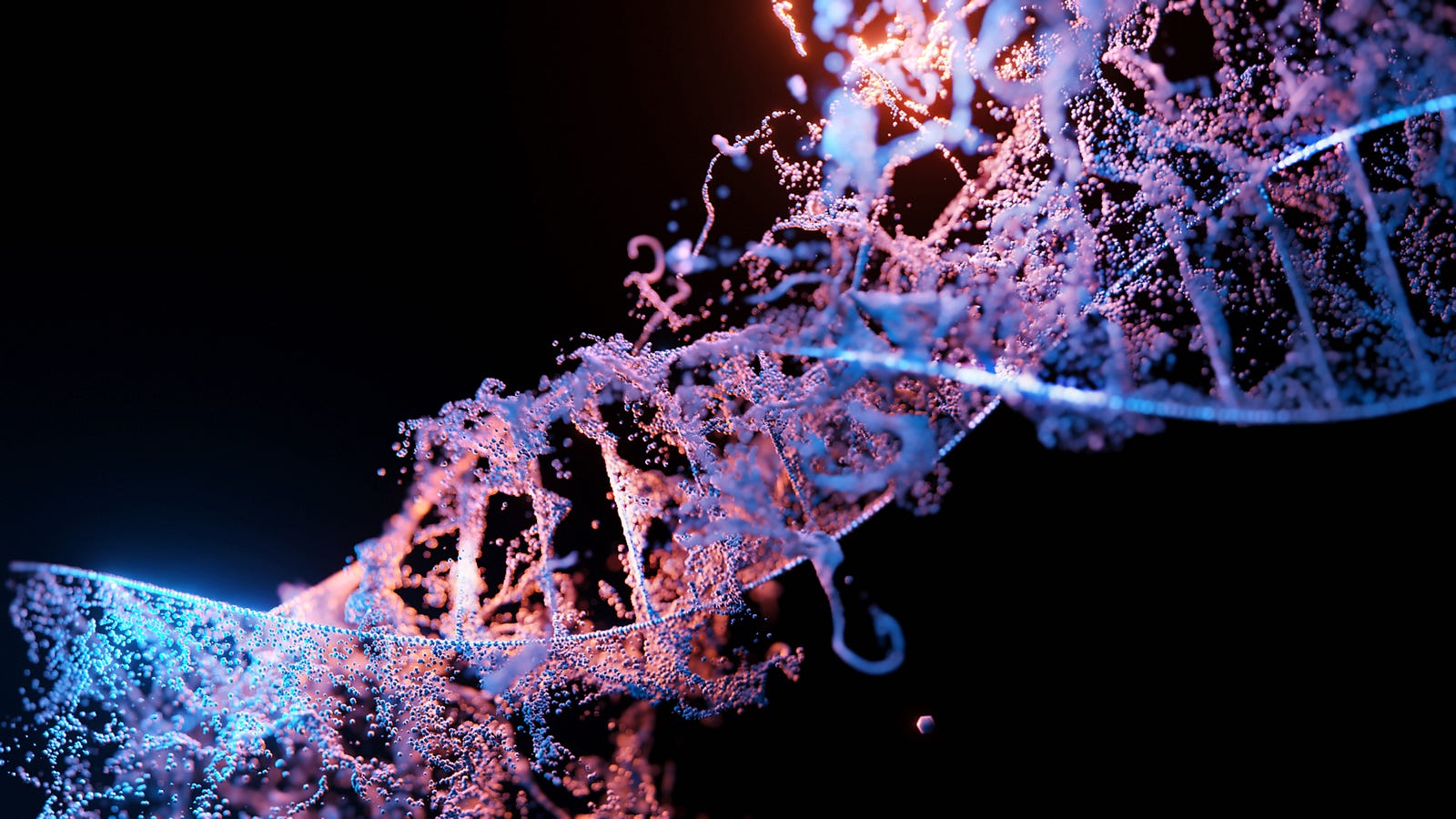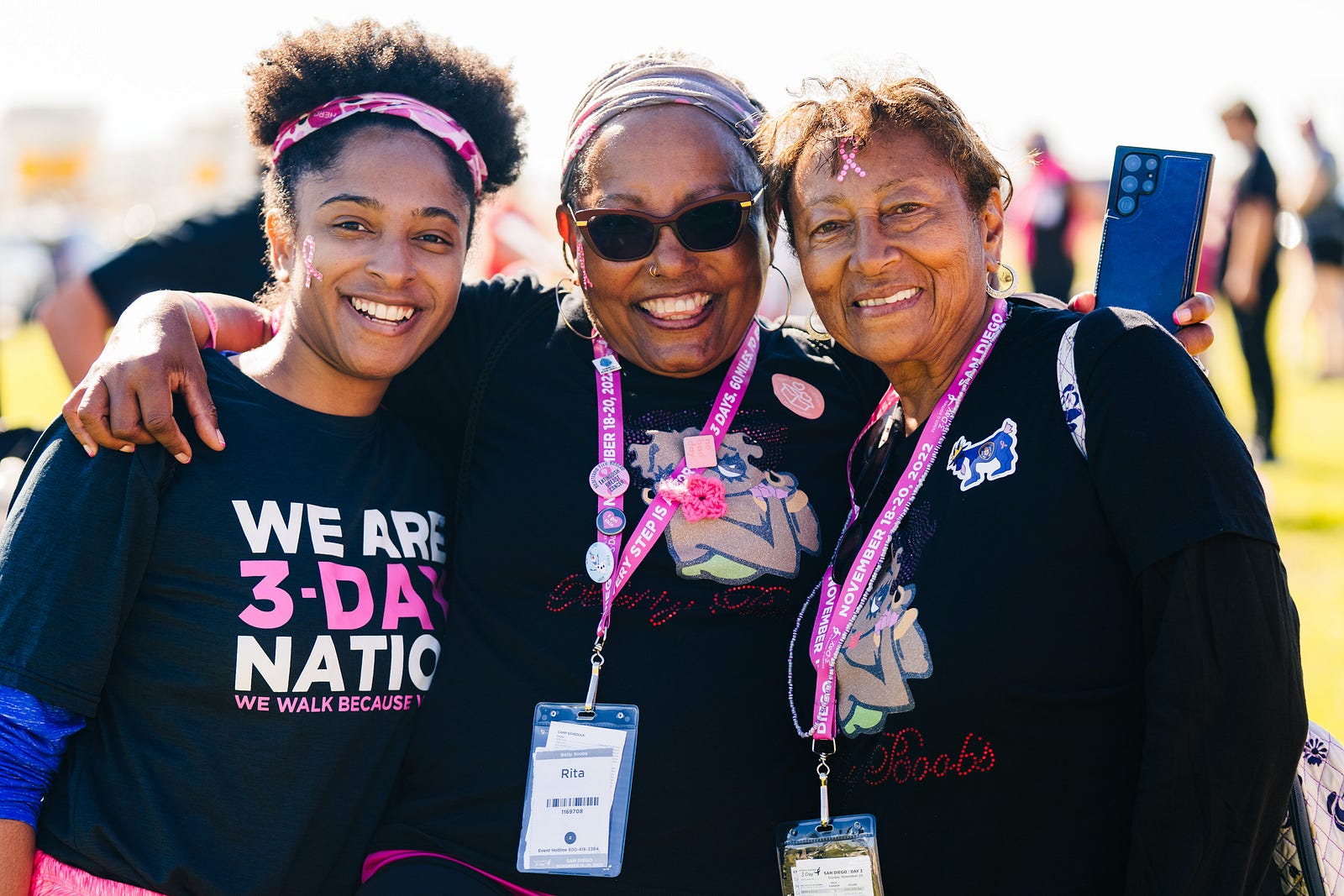RACE MATTERS WHEN IT COMES TO BREAST CANCER GENES. Or does it? After performing a case-control study, researchers report no meaningful differences in the prevalence of abnormal breast cancer risk genes between Black and non-Hispanic white women with breast cancer. Today we explore the relationship between race and breast cancer.
The United States has recognized October as National Breast Cancer Awareness Month for nearly four decades.
I am interested in breast cancer, so the study findings immediately caught my eye.
I begin with this observation from the U.S. Centers for Disease Control:
Only five to 10 percent of breast cancer is hereditary. Hereditary cancer means cancer runs in your family and could be caused by a change in certain genes that you inherited from your mother or father.
Inherited Genes and Breast Cancer Risk
Inherited genes are crucial in determining an individual’s risk of developing breast cancer.
One of the most well-known genetic factors associated with breast cancer risk is mutations in the BRCA1 (BReast CAncer1)and BRCA2 genes.
BRCA genes signal the production of proteins that help repair damaged DNA and maintain genome integrity.

However, when these genes contain harmful mutations, the risk of breast cancer increases significantly.
Individuals who inherit these mutated genes from one of their parents have a much higher risk of developing breast and ovarian cancer.
Not all breast cancer cases are linked to these genes, and other genetic factors may contribute to an individual’s risk.
Beyond BRCA1 and BRCA2
About 13 percent of Americans will develop breast cancer during their lives.
On the other hand, those with a harmful BRCA1 variant have a 65 percent chance of getting breast cancer. If you have a deleterious BRCA2 variant, your odds of developing breast cancer are 45 percent (or more).
The risk for any woman (or man) depends on several factors, some of which have not been fully characterized.
Beyond BRCA1 and BRCA2, researchers have identified several other genes that can influence breast cancer susceptibility.
These other genes include TP53, PTEN, and CHEK2, among others. Inherited genetic mutations in these genes can contribute to an increased risk of breast cancer, although the risk magnitude varies depending on the specific gene involved.
Study Design
Is there a difference in the prevalence of inherited breast cancer risk-raising variants in genes in U.S. Black women compared with non-Hispanic white women with breast cancer?
To answer this question, researchers from several institutions performed a case-control study. Before we get to the study details and results, here’s a quick introduction to the methods used.
A case-control study is an observational study that examines factors linked with outcomes or diseases. The case-control study starts with a group of cases, individuals with the outcome of interest.
The investigator then tries to construct a second group of individuals called “controls,” similar to the case individuals but don’t have the outcome of interest.
The researcher then examines historical factors to identify if some exposures are more common among the cases than the controls.
If so, the researcher can hypothesize that the exposure may be associated with the outcome of interest.
Breast Cancer, Inherited Genetics, and Race
Researchers wondered whether U.S. Black and non-Hispanic white women with breast cancer have a different prevalence of meaningful (pathogenic) variations in 12 cancer susceptibility genes.
The women with breast cancer were unselected for family history or age at diagnosis. Researchers collected data from 1993 to 2020 from several institutions.

Here are the results:
Breast cancer risk-raising genetic mutations were similarly prevalent among U.S. Black and Hispanic white women.
My Take
So many of my patients think of BRCA gene mutations (and the higher risk of having such genes among those of Ashkenazi Jewish ancestry).
The study we looked at today reminds us that we should not make genetic testing decisions based on race alone.
Rather, we should ensure equal access to (and uptake of) appropriate genetic testing to minimize disparities in care and outcomes.
Genetic testing and counseling are essential tools for individuals with a family history of breast cancer, as they can help identify whether these inherited genetic mutations are present, allowing for more informed decisions about preventive measures and screening.
While inherited genes are crucial to breast cancer risk, they interact with various environmental and lifestyle factors to determine an individual’s overall susceptibility to the disease.
Understanding your genetic predisposition and making informed healthcare choices can be pivotal in the early detection and prevention of breast cancer.
Thank you for reading “Race and Breast Cancer.”




